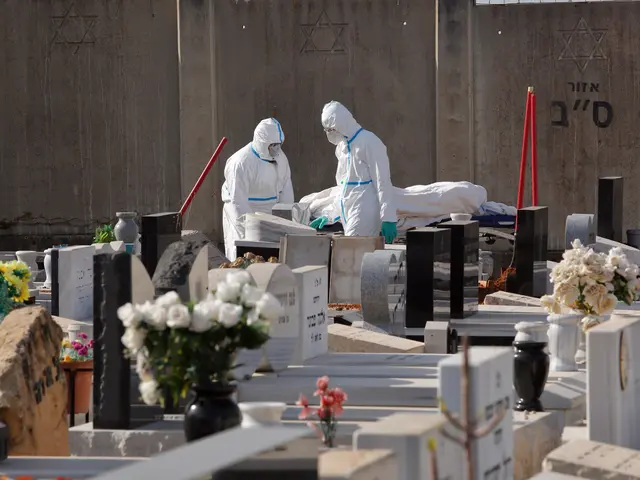With the advent of the holy month of Ramadan, during which the Muslim families will gather together for a festive meal at the end of a daily fast, more efforts might be needed to protect the big Islamic occasion from the COVID-19 epidemic in Israel where more than 20 percent of the population is Muslim.
Earlier this week, Israeli Prime Minister Benjamin Netanyahu chaired a meeting with mayors of several Arab cities in the country as well as other ministers and the head of the national security council, where they discussed steps to curb the spread of the coronavirus among the Muslim population.
The overall plan is to maintain close cooperation between Arab council heads, members of parliament, local authorities, leading religious figures and the Israel Defense Forces (IDF) in the battle against the deadly virus.
In Israel, more than 14,000 have been diagnosed with COVID-19 and nearly 190 have died. In the past two weeks, there has been an increase in the number of Arab-Israelis who have contracted the virus.
Thabet Abu Ras, co-executive director of the Abraham Initiatives, a non-governmental organization that promotes Jewish-Arab relations in Israel, calls for greater measures against this particular challenge.
"Especially now, enforcement needs to be harsher because there is a relaxation and fatigue among people after so many days," said Abu Ras.
"There needs to be more cooperation with security forces. People hear about the government talk about an exit strategy, but in the Arab society we haven't reached the peak yet," he added.
In a rare display of cooperation, the Israeli military has been distributing food packages in Arab cities and villages to the needy, while heightening presence of police and army forces in Arab areas.
"We have been meeting with heads of the Arab communities and discussing with them how they can celebrate and uphold their traditions and their prayers while protecting them and their families," said Amir Harel of the IDF's Home Front Command that plays a large role in the anti-virus campaign.
"The religious leaders are very very attentive and there is excellent cooperation," Harel, also commander of the Haifa Coastal District, told Xinhua.
In Israel, the past year of political instability has fuelled the already widening rift between Arabs and Jews in the country. But as the novel coronavirus spreads, palpable changes are being felt in the society.
"This is a fascinating time," Abu Ras from the Abraham Initiatives told Xinhua. "The image of the IDF and security forces is changing in Arabs' eyes."
"When such a population sees that the country is doing something for them and fighting for their lives and this tightens the cooperation," Harel of the IDF noted.
The IDF has so far distributed more than 200,000 anti-virus brochures and stickers in Arabic to local municipalities, and plans to disseminate 20 more videos or so on social media to continue to explain the risks of not heeding to the restrictions.
"We need the police now more than ever before," concluded Abu Ras.
(by Keren Setton)
 简体中文
简体中文

